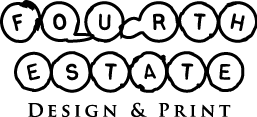by guest blogger, Peter Dornan – AM Physiotherapist; Founder (1997) and Convenor Brisbane Prostate Cancer Support Group:
The Quest – What is a Man?
A man must go on a quest
To discover the sacred fire
In the sanctuary of his own belly
To ignite the flame in his heart
To fuel the blaze in the hearth
To rekindle his ardour for the earth
Sam Keen
At a recent scientific symposium in Brisbane highlighting research into Men’s Health and prostate cancer, some universal questions were asked,
“Why don’t men look after their health better”?
“Why must men appear to be invincible, invulnerable, stoic, never wrong and always-in-charge?”
“Why do men give the impression they have their heads in the sand concerning questions related to their health?”
These questions are not just directed at older men. More than 40 percent of men over the age of 40 suffer serious health problems, including heart disease, stroke and cancer.
These are valid questions and the answers can’t easily be found by relating them to the present. For solutions, we have to draw a long bow, back about two million years. We have to discover what events ignited this resistant, patronising and potentially dangerous behaviour, and in the process, reveal why it has persisted right up until modern times.
Early in this era, (The Pleistocene) our ancestors – homo erectus, had just stood upright. To survive, they formed nomadic hunter-gatherer tribes wandering the African plains. This developed into a sharing of roles. In the process, it changed male/female behaviour, physiology and relationships. Society’s needs dictated that men should evolve to be the hunters – to provide, to kill large animals and furnish protein-rich meat. They formed teams, building strong bonds of mateship as they spent all day singularly focussing on tracking and chasing their prey – a bond that is still strong today, as evidenced in military and sporting sodalities. To be successful, they needed strength, endurance and speed so they developed more testosterone to enable this. This also had the effect of increasing their competitiveness and risk-taking tendencies. This also helped them to develop another strong male characteristic – to be warriors – to protect, to fend for the tribe and their families.
Their women-folk accepted the role of gathering, searching for local food, berries etc., caring for their children and their habitat. Society also delegated women to look after their partner’s and family’s health. This was a good move and something they have done admirably, lovingly sharing their lives. There is a third role – the strongest – which defined us as males – Sex. This completes the scenario of who we think we are – the three P’s, to Protect, to Provide and to Procreate.
There is no denying that this last motivation, to procreate, is what drives us most. Going back even further, this zeal was sharpened when our species was no more than a vertebral column with gonads and a brain power just strong enough to illuminate an electric light bulb. If an attractive member of the opposite sex wandered into our awareness, our brain would light up and we would act instantly before a predator or competitor could beat us. We still have this reflex – witness as an attractive woman “makes an entrance” at a function. A male’s attention can be instantly diverted. A civil and strong character will respond with a mere flicker of the eye-balls, but nevertheless, the three P’s are ingrained into our definition of who we are.
And we have lived our existence by those 3P’s steadfastly through the generations. Whether it be through frozen European ice-ages hunting mammoths, the American plains hunting buffalo, fisherman living by the ocean or as modern corporate warriors circling a good deal. Or even the ultimate gladiator sport, Politics.
This vision has persisted up till recent generations, where men were invested with an ingrained, heroic stout-hearted images of themselves, resonating back to days of chivalry. Three treasured Walter Mitty roles would include
- The dashing, knight in shining armour
- The valiant cocky, fighter-pilot
- The unflinching gun-fighter
These are roles we still play out. (My wife teases me even now that I often walk like a taut gunslinger, waiting for a fight that’s never going to happen).
And this is the role we’ve been programmed to play. Observe the television advertisements from the 50’s and 60’s, how the typical family is depicted. The stereotype strong and silent father comes home from work, his beautifully attired and smiling wife greets him at the door, the children are clean and fed and she presents him with the evening paper, his favourite chair, pipe, slippers, and sherry – the master of his house and domain.
The reality is, men have always had a simplistic and auto-pilot view of their life. No need to think too much about it – the system worked. It is almost in our DNA, so, a note to our partners, you shouldn’t expect men to change their perspective of life easily. (It’s not in our DNA, by the way, just our learned behaviour).
However, men, in your dreams! Times and life have changed and is changing dramatically. The main driver of this amendment was the invention of “the Pill’, contraception – in the 1960’s – and a realisation that women could suddenly be ‘liberated’. In less than a few generations, women have gained the ability to be independent. Gender equality emerged in all ways and areas. Generally, women simply do not need to be provided for. In fact, the ancient ideals of chivalry – that is, men should be perfect gentlemen, faithful, courteous to women, pure, brave and fearless, unsparing of self, bowing before God and womankind, is considered by many today to be worthy of disdain and largely irrelevant.
Earlier generations were spawned by an unbroken line of men who were imbued with the ideals of chivalry. The reality now is that the demands for providing and protecting are not as great. Procreation remains universal but women now have a voice to control elements of this aspect.
Where do we go from here? Are we to be held captive in an ivory tower of our ‘manhood’, isolated from emotion, vulnerability and our greater humanity?
Psychologist Karen Nixon says this is wrong. Aggression and vulnerability are human qualities, not gender roles. They have been unnaturally suppressed, rendering us powerless and inexperienced when we are confronted with any threatening disease or loss.
Is there a way out?
Firstly, we must begin to see life with greater insight and awareness – this may translate to living a fuller life with more complexity. We have to be prepared to go through a process of transformational change. This means entering a period of self-reflection and reinvention. It starts by altering our perception of who we are, or were, challenging all previous roles placed on us by institutions, school, churches, government, parents and history and start to rebuild our identity from scratch. This means accepting that a male is a human being with human qualities. He need not be aggressive, nor invulnerable and he will achieve more efficiently by sharing and collaborating with their partners. Men will get sick like everyone else; they have a potential medical history, physical, mental, emotional -disease does not favour gender.
This self-directed study can have important trade-offs. It can help cut through the nonsense and sham concerning our sexuality. Men actually generally relate better to male company; they understand them. Likewise woman relate better to women’s company. They come together because the powerful drive to perpetuate our species, sex, is the strongest drive of all. These insights can help us better understand ourselves and women. Whereas men are often fixated with penetrative sex, women universally rate the overall relationships in terms of warmth, caring, touching and closeness as being just as important, if not more so than erectile function. This is sexuality, not sex. Sexuality relates to being male (or female) and is independent of the ability to have penetrative sex.
Secondly, men must regain responsibility for their health – from a young age! We must learn to be proactive, learn about screening, heart-health, diet and all aspects of health and fitness. We must regularly consult with our GP. It makes sense to share health problems with our partner, but we retain the ability to be in charge. We must be the commander and architect of our health.
Finally, to keep driving this concept forward, we need to keep encouraging and supporting institutions that reinforce Men’s Health, such as Andrology Australia, Movember, Beyond Blue, Prostate Cancer Foundation of Australia, Men’s Sheds and Cancer Council Australia.
Peter Dornan AM
Physiotherapist
Founder (1997) and Convenor
Brisbane Prostate Cancer Support Group




